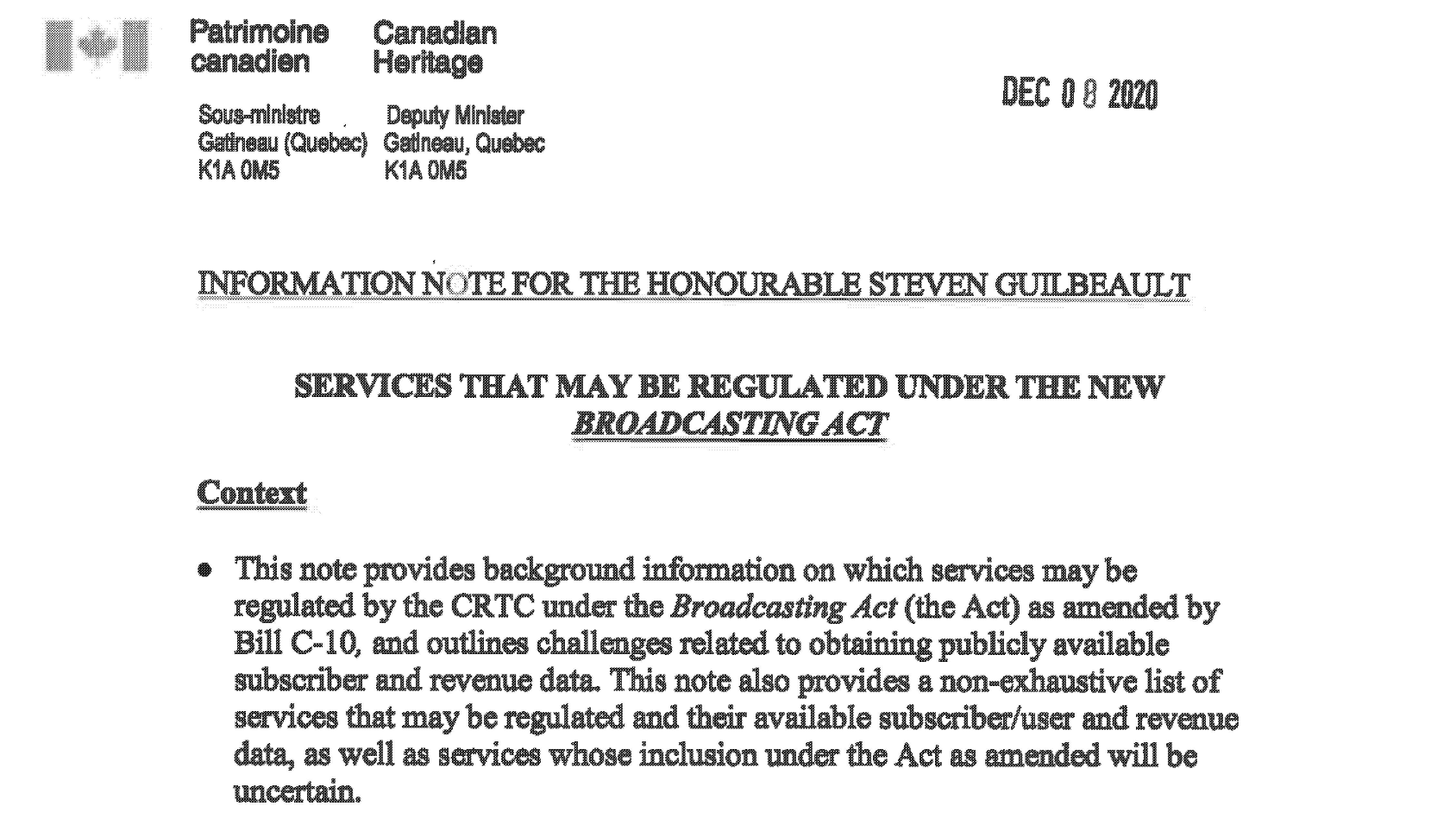The Department of Foreign Affairs has posted a good summary of the recent ACTA consultation meeting. The powerpoint from the meeting is here. My posts following the meeting are here, here, here, here, and here.

Canadian Heritage Memorandum, December 8, 2020, ATIP A-2020-00498
Bill C-10
ACTA vs. APEC
Earlier this week, I posted an article on how countries negotiating the Anti-Counterfeiting Trade Agreement now acknowledge that a prime motivation behind their participation in the negotiations is the avoidance of WIPO. Interestingly, I recently obtained under the Access to Information Act the Canadian delegation instructions for the APEC Intellectual Property Experts Group (IPEG), meeting held in Taipei in June 2007. These instructions came just months before the formal announcement of ACTA negotiations and several years after the initial work on ACTA began at the G8. The instructions include:
The ACTA Threat to the Future of WIPO
When the Anti-Counterfeiting Trade Agreement was first announced in October 2007, my first blog posting on the issue was titled Is ACTA the New WIPO?. I return to that theme in an opinion piece just published by the Swiss-based Intellectual Property Watch. While the first part of the piece focuses on the ACTA transparency issues, the second half discusses the short and longer-term implications for the developing world and the World Intellectual Property Organization. I note:
In the short-term, WIPO members can expect progress on Development Agenda issues to stall as ACTA partners focus on completing their treaty. Given the scepticism surrounding the Development Agenda harboured by some ACTA countries, they may be less willing to promote the Agenda since their chief global policy priorities now occur outside of WIPO.
The longer-term implications are even more significant. While it seems odd to conclude an anti-counterfeiting treaty without the participation of the countries most often identified as the sources or targets of counterfeiting activities, the ACTA member countries will undoubtedly work quickly to establish the treaty as a "global standard." Non-member countries will face great pressure to adhere to the treaty or to implement its provisions within their domestic laws, particularly as part of bilateral or multilateral trade negotiations. In other words, there will be a concerted effort to transform a plurilateral agreement into a multilateral one, though only the original negotiating partners will have had input into the content of the treaty.
Given these possibilities, I argue that the best course of action is for the developing world to demand a seat at the ACTA table. In doing so, it would in fact turn the plurilateral negotiations into a multilateral one and thereby ensure that the ACTA better reflects the interests and concerns of the global community. In particular:
Korean Version of ACTA Timeline
IP Left, a Korean NGO, has created a Korean-language version of my ACTA Timeline post.
Wikileaks Posts ACTA Documents Revealing Enforcement Cooperation and Practices Info
Wikileaks has posted additional original ACTA documents, including draft language for several sections of the treaty. The leaked documents are consistent with earlier reports on the Enforcement of Intellectual Property Rights Chapter. The leak package also includes the Canadian non-paper on institutional arrangements for ACTA (Canada has since supplied draft treaty language that has not been leaked).
The one document this is completely new is the release of the non-paper on International Enforcement Cooperation and Enforcement Practices, which would form Chapters 3 and 4 of ACTA. The basis for discussion for the International Enforcement Cooperation (Chapter 3) are:






